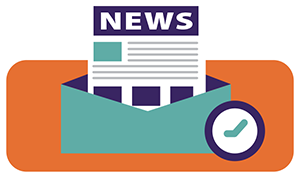In the News
Ability Central Grants the Down Syndrome Connection $100,000 for Pilot Mental Health Program
January 04, 2023
DANVILLE, CA – The Down Syndrome Connection of the Bay Area (DSCBA) is thrilled to announce that it has received a $100,000 grant from Ability Central for Phase III of its pilot Mental Health & Wellness Alliance program.
This is the second grant DSCBA has received from Ability Central for this program, which seeks to improve access to quality mental health services for individuals with Down syndrome and their families. Through the program, the DSCBA provides referrals to mental health therapists who have been trained by the DSCBA and provided with communication tools to facilitate productive therapy for individuals with an intellectual disability. The DSCBA also provides ongoing support to ensure effective therapy.
“I have really grown in my capacity to take risks as a therapist and incorporate alternative supports, such as [Alternative & Augmentative Communication] AAC/visuals, seeing how successful they are for my client with Down syndrome's accessibility to the work,” says Alana Smith-Grove, one of the participating therapists at Grateful Heart Holistic Therapy Center, which is DSCBA’s major partner in the program. “I have actually started using visual supports in my therapy practice with clients without Down syndrome too, and find it to be a helpful tool in crystallizing symbols and building continuity in the work,” Smith-Grove adds.
DSCBA began the program in 2021 with an awareness of a gap in available mental health services for people with intellectual or developmental disabilities (I/DD). According to the National Association of Developmental Disabilities, one-third of all persons with I/DD have a psychiatric disorder that affects their daily functioning, combined with limited coping skills due to language difficulty and inadequate social supports (2018).
The DSCBA was receiving many calls each year, and particularly during the pandemic, from family members of a child or adult with Down syndrome. They were looking for referrals for mental health clinicians trained in working with individuals with I/DD, but the DSCBA had limited access to trained providers they could refer to.
“There is a high rate of anxiety and depression among individuals with Down syndrome,” says Marianne Iversen, the Director of Teen and Adult Services at the DSCBA. “The COVID-19 pandemic made these mental health conditions even worse for families whose routines and social connections became disrupted.”
Through the Mental Health & Wellness Alliance program, the DSCBA is training dozens of clinicians in the unique needs of people with Down syndrome and their families, as well as how to use AAC and visual aids to help with communication. It has also facilitated individual and group therapy for 36 individuals with Down syndrome and 20 family members through Grateful Heart.
“Therapy helped someone like me, with an extra chromosome. People with Down syndrome aren’t always happy, and that’s a myth,” shares one of the program participants. “For people with disabilities, just like me, therapy can help us not feel sick or depressed anymore. It really helps to talk to someone besides family.”
With Phase III of the program, beginning in 2023, the DSCBA aims to expand the scope and increase collaboration among mental health providers, educators, training institutes, and I/DD service providers in the San Francisco Bay Area, with a special focus on schools of psychology where therapists engage in continuing education.
Other funders of the program include the California State Council on Developmental Disabilities, the Global Down Syndrome Foundation, the Barr Family Foundation, RBC Wealth Management, and the Rosendin Foundation.
Click here to view Press Release













